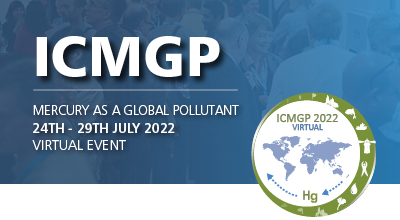| Abstract Title: | Phasing Out Mercury in Lighting – Cost-Effectively Improving Public and Environmental Health |
| Presenter Name: | Michael Scholand |
| Company/Institution: | Clean Lighting Coalition |
| Session: | How are we doing in implementing the Minamata Convention? |
| Co-Authors: |
Abstract Information :
A global transition to mercury-free lighting can mitigate rising energy demand and avoid 3.5 gigatonnes of CO2 emissions through 2050
All fluorescent lighting contains mercury. Although integral to the functioning of fluorescent lamp technologies, mercury is released into surrounding areas whenever a fragile bulb breaks. The Clean Lighting Coalition (CLiC) campaign is leveraging expert knowledge and clean lighting stakeholders to transition global markets away from fluorescent lamps towards safe, cost-effective, and energy-saving LED lighting. CLiC is working to support the elimination of fluorescent lamp exemptions under the United Nations Minamata Convention on Mercury.
In 2021, CLiC sought to demonstrate the technical and economic feasibility of phasing-out fluorescent lighting globally. The campaign engaged partner organisations in over 35 countries across Africa, Latin America and Asia-Pacific to gather primary price and performance data on over 1200 models of both mercury-containing fluorescent and retrofit LED light bulbs. The researchers created “matched pairs” of products, comparing equivalent fluorescent and LED models to evaluate life-cycle costs.
The analysis found that in many countries, general service LED lamps are already cheaper or at price parity with compact fluorescent lamps. For tubular LED lamps replacing linear fluorescent lamps, LED is slightly more expensive, but in most countries the LED pays for that incremental cost through energy savings in less than 1 year. In some countries like South Africa and Uganda, the LED tubes were the same or cheaper than the fluorescent tubes, so the payback period was instantaneous.
Accelerating the transition to LEDs will provide significant environmental and health benefits, while also providing a highly cost-effective solution for consumers and businesses. CLiC calculated cumulatively (2025-2050), switching to mercury-free alternatives would avoid 3.5 gigatonnes of CO2, 232 tonnes of Hg and save US$1.3 trillion in electricity bills globally.
In March 2022, at the Minamata Convention fourth Conference of Parties (COP4), 137 Parties (countries) agreed to phase-out compact fluorescent lamps by 2025. This move will avoid 26.2 metric tonnes of mercury pollution and 261.5 million metric tons CO2 emissions from 2025-2050, while saving end-users US$77.8 billion on their energy bills.
Phasing-out mercury-containing, inefficient lighting is a tangible action with exemplary co-benefits for the planet. While progress was made at COP4, remaining linear fluorescent lighting must be phased out at the upcoming Minamata Convention COP5 in 2023. If successful, the Clean Lighting Coalition campaign will achieve long-term public health, economic and environmental benefits by accelerating the global transition to clean, energy-efficient LED lighting.



